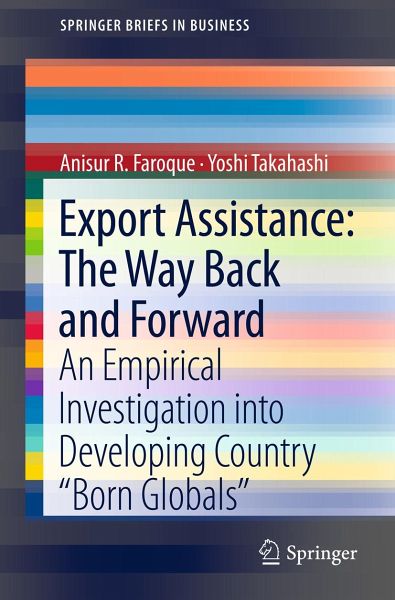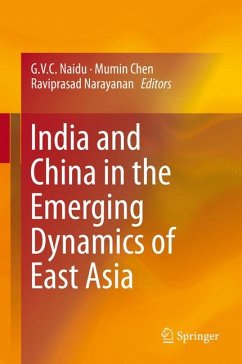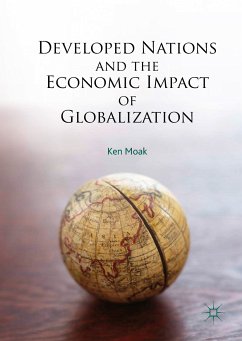
Export Assistance: The Way Back and Forward (eBook, PDF)
An Empirical Investigation into Developing Country "Born Globals"
Versandkostenfrei!
Sofort per Download lieferbar
38,95 €
inkl. MwSt.
Weitere Ausgaben:

PAYBACK Punkte
19 °P sammeln!
"Born global" (BG) firms have attracted many researchers throughout the last decade. The emergence of this phenomenon initially posed a serious challenge to the validity and applicability of the traditional "stage" theory of internationalization; however, scholars have more recently been able to reconcile traditional and new theories into a single framework for studying the process of internationalization. This volume applies both network theory and knowledge-based theory to analyze export assistance in the context of internationalization of low-tech BG firms in developing countries (with an i...
"Born global" (BG) firms have attracted many researchers throughout the last decade. The emergence of this phenomenon initially posed a serious challenge to the validity and applicability of the traditional "stage" theory of internationalization; however, scholars have more recently been able to reconcile traditional and new theories into a single framework for studying the process of internationalization. This volume applies both network theory and knowledge-based theory to analyze export assistance in the context of internationalization of low-tech BG firms in developing countries (with an in-depth study of the apparel industry in Bangladesh).
The findings that non-governmental network partners provide more useful advice than government agencies is one that may resonate through other countries, including developed economies. Government's more useful role is confined to the financial support and incentives that are provided to such firms. It is, however, the commitment to exporting that emerges as critical for performance, more so than export strategy, suggesting that enhanced export performance is to attract, reassure and motivate entrepreneurs in ways that strengthen their commitment to international expansion.
The findings that non-governmental network partners provide more useful advice than government agencies is one that may resonate through other countries, including developed economies. Government's more useful role is confined to the financial support and incentives that are provided to such firms. It is, however, the commitment to exporting that emerges as critical for performance, more so than export strategy, suggesting that enhanced export performance is to attract, reassure and motivate entrepreneurs in ways that strengthen their commitment to international expansion.
Dieser Download kann aus rechtlichen Gründen nur mit Rechnungsadresse in A, B, BG, CY, CZ, D, DK, EW, E, FIN, F, GR, HR, H, IRL, I, LT, L, LR, M, NL, PL, P, R, S, SLO, SK ausgeliefert werden.













